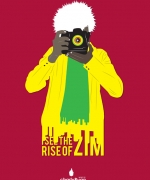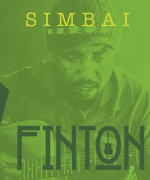NGO Frontline... MSF
I had heard of the horror stories that my fellow Zimbabweans faced while they illegally crossed the borders of our beloved homeland to seek refuge in lands afar
Having had the opportunity to be Captain Planet and make my contribution in saving the vast rich forests and land of Africa as part of Greenpeace I got an opportunity to join one of the world's biggest and best Humanitarian organisations. For me 2011 was to be a new dawn in my professional life as I jumped ship from fighting for the environment to fight for the rights of my people.
Being one of the many qualified professionals who left Zimbabwe in mass to seek a decent living in a foreign country, I had heard of the horror stories that my fellow Zimbabweans faced while they illegally crossed the borders of our beloved homeland to seek refuge in lands afar. After a few good years of comfort I found myself at a cross roads when I took a trip to down town Johannesburg and found myself in front of the then infamous to me Central Methodist Church.
For the first time in my three years in South Africa I witnessed the suffering, the cries the hunger of migrants mostly my fellow country men and women. The stench from them was unbelievable and to me a journey of awakening began. That was June 2010 and I looked at living the environmental side of things and start focusing on the humanitarian side with special focus on illegal immigrants mainly because they came from my country.
January 2011 I joined Medecins Sans Frontieres/ Doctors Without Borders as The Northern Region Fundraising Coordinator. At last I felt I could make and a change as my task in the organisation is to raise funds for us to manage to sustain our projects. Medecins Sans Frontieres is an independent international humanitarian organisation providing health care to people affected by armed conflict, epidemics, natural or man made disasters, or exclusion from health care in more than 70 countries.
The story of Zimbabwe is a sad one , once hailed as the Bread Basket of Africa our country has been reduced to rubbles. Poor political management of the country has forced over 35% of the total population to flee the country. 25% of the entire population having fled to neighbouring countries , especially South Africa, as a matter of survival. They are raped, beaten, and robbed while crossing the border, they struggle to find basic shelter and other assistance in South Africa, and they are subjected to xenophobic violence , abuse, and neglect, even while trying to access health care.
As MSF we have three big projects geared at helping the poor and vulnerable members of our society and as a Zimbabwean I'm sad to say over 80% of our case load is Zimbabweans. I will give you a glimpse of the suffering and how as MSF we are trying to help even though this suffering will continue until our politicians decide to put their house in order.
In the past several years, the crisis in Zimbabwe has given rise to food security, an unprecedented Cholera epidemic, political violence, rampant unemployment, an escalating HIV crisis and the near-total collapse of the health system. With this in mind thousands cross the border to SA everyday most of them illegally and what awaits them are the horrors far worse than what they flee back home. I have detailed a few quotes we got from Zimbabweans who had faced neglect by the South African people.
Once they know you are a foreigner, the treatment is different. But if you are accompanied by the MSF social assistant , then the treatment is okay because they know she is there to assist and she always speaks on your behalf, so you get treatment.
An MSF patient in Johannesburg
A Zimbabwean mother brought her six-year old child to our clinic. The child had been raped. She was examined by our medical doctor and prophylactic treatment was given. Our counsellor did an initial counseling session with the mother and referred them to the hospital for further medical follow-up. The child was turned away from the hospital because she and her mother did not have legal documentation. It is unacceptable and inhuman to refuse treatment for a six-year old child who needs essential medical care after she has been raped. Not having legal documents cannot be a reason to deny access to health care.
B. Tolboom, Nurse and Project Coordinator MSF Joburg.
I had a patient who was pregnant, and we sent her to the hospital. When she got there, the water had already broken. They took her to the nurses. When they looked at the patient and where she came from- she produced her papers- they said A foreigner?, and they just walked away. They left her on the gurney.
An MSF doctor in Joburg
A 16-year-old-girl crossed into South Africa with her with her two aunts and four men. When the group as at a farm about 30 kilometres south of Musina, they slept in the bush. At dawn they were ambushed by a group of guma-gumas. As she was running, the young girl tripped and fell. One of the guma-gumas then searched her and took her money. He then proceeded to violently rape her. Her genitalia were bruised, she was infected with an STI and to make it worse she has missed her period and could be pregnant from the rape. She said she could not go to hospital for fear of being deported.
S .Hjalmarsson, MSF Nurse Musina
With all this pain and suffering and abuse we decided to come up with a campaign called SOLIDARITY FOR SURVIVAL, it deals with the reasons why people flee their homes; how they come to South Africa as a matter of survival; and their experiences of migration, refugee rights, legal status and xenophobia in this country.
SOLIDARITY FOR SURVIVAL focuses on five countries where MSF provides urgent medical care to vulnerable people in Sub-Saharan Africa: the Democratic Republic of Congo, Somalia, South Sudan, Zimbabwe and South Africa.
More than 43 million people the world over have been forcibly uprooted with no choice but to leave their homes because of violence, political instability and increasingly because of economic crisis and the collapse of basic services including health care. In 2010 the number of asylum seekers globally increased by 28% and South Africa accounted for the single largest number of individual asylum claims at a staggering 207,000 according to the UNHCR.
As a proud Zimbabwean I sleep better at night knowing that my sweat and toil benefits my fellow countrymen.
So the next time you see Medecins Sans Frontiers give them your support.




